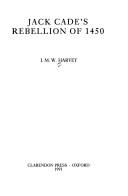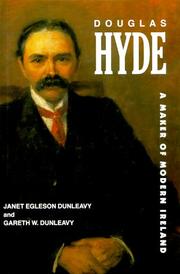| Listing 1 - 3 of 3 |
Sort by
|

ISBN: 0198201605 Year: 1991 Publisher: Oxford New York Clarendon Press Oxford University Press
Abstract | Keywords | Export | Availability | Bookmark
 Loading...
Loading...Choose an application
- Reference Manager
- EndNote
- RefWorks (Direct export to RefWorks)
Book
ISBN: 2870311524 9782870311523 Year: 1991 Volume: 212 Publisher: Bruxelles : Éditions Latomus,
Abstract | Keywords | Export | Availability | Bookmark
 Loading...
Loading...Choose an application
- Reference Manager
- EndNote
- RefWorks (Direct export to RefWorks)
Histoire et culture romaines --- Romeinse geschiedenis en cultuur --- Jews --- Juifs --- History --- Histoire --- Palestine --- Rome --- Politics and government --- Politique et gouvernement --- Roman provinces --- -Hebrews --- Israelites --- Jewish people --- Jewry --- Judaic people --- Judaists --- Ethnology --- Religious adherents --- Semites --- Judaism --- -Middle East --- Asia, South West --- Asia, Southwest --- Asia, Western --- East (Middle East) --- Eastern Mediterranean --- Fertile Crescent --- Levant --- Mediterranean Region, Eastern --- Mideast --- Near East --- Northern Tier (Middle East) --- South West Asia --- Southwest Asia --- Orient --- Relations --- -History --- -Provinces --- -Relations --- -Jews --- -Roman provinces --- Provinces of Rome --- Jewish-Roman War, 66-73 --- Roman-Jewish War, 66-73 --- Middle East --- Rim --- Roman Empire --- Roman Republic (510-30 B.C.) --- Romi (Empire) --- Byzantine Empire --- Rome (Italy) --- Asia, West --- West Asia --- Western Asia --- Roman provinces - Asia. --- Jews - History - Rebellion, 66-73. --- Provinces

ISBN: 0520909321 128235552X 9786612355523 0585071977 0520066847 9780520909328 9780585071978 9780520066847 Year: 1991 Publisher: Berkeley, CA : University of California Press,
Abstract | Keywords | Export | Availability | Bookmark
 Loading...
Loading...Choose an application
- Reference Manager
- EndNote
- RefWorks (Direct export to RefWorks)
In 1938, at an age when most men are long retired, Douglas Hyde (1860-1949) was elected first president of modern Ireland. The unanimous choice of delegates from all political factions, he was no stranger to public life or to fame. Until now, however, there has been no full-scale biography of this important historical and literary figure. Known as a tireless nationalist, Hyde attracted attention on both sides of the Atlantic from a very early age. He was hailed by Yeats as a source of the Irish Literary Renaissance; earned international recognition for his contributions to the theory and methodology of folklore; joined Lady Gregory, W. B. Yeats, George Moore, and Edward Martyn in shaping an Irish theater; and as president of the Gaelic League worked for twenty-two years on behalf of Irish Ireland. Yet in spite of these and other accomplishments Hyde remained an enigmatic figure throughout his life. Why did he become an Irish nationalist? Why were his two terms as Irish Free State senator so curiously passive? Why, when he had threatened it earlier, did he oppose the use of physical force in 1916? How did he nevertheless retain the support of his countrymen and the trust and friendship of such a man as Eamon de Valera? Douglas Hyde: A Maker of Modern Ireland dispels for the first time the myths and misinformation that have obscured the private life of this extraordinary scholar and statesman.
Hyde, Douglas,-- 1860-1949. --- Ireland - History - 20th century. --- Nationalists - Ireland - Biography. --- Presidents - Ireland - Biography. --- Scholars - Ireland - Biography. --- Presidents --- Nationalists --- Scholars --- Regions & Countries - Europe --- History & Archaeology --- Ireland --- Biography --- Hyde, Douglas, --- History --- Craoibhín Aoibhinn, --- An Craoibhín Aoibhinn, --- An Craoibhín, --- De h-Íde, Dúbhglas, --- H-Íde, Dúbhglas de, --- Biography. --- Persons --- Learning and scholarship --- anglo irish. --- biography. --- british history. --- celtic. --- colonialism. --- diplomacy. --- douglas hyde. --- drama. --- eamon de valera. --- edward martyn. --- folklore. --- free ireland. --- freedom. --- gaelic league. --- george moore. --- independence. --- ira. --- ireland. --- irish free state. --- irish history. --- irish independence. --- irish literary renaissance. --- irish nationalism. --- irish republican army. --- irish theater. --- lady gregory. --- nation. --- nationalist. --- political factions. --- politics. --- president. --- rebellion. --- republic. --- republican government. --- revolution. --- senator. --- statesman. --- war. --- yeats.
| Listing 1 - 3 of 3 |
Sort by
|

 Search
Search Feedback
Feedback About UniCat
About UniCat  Help
Help News
News